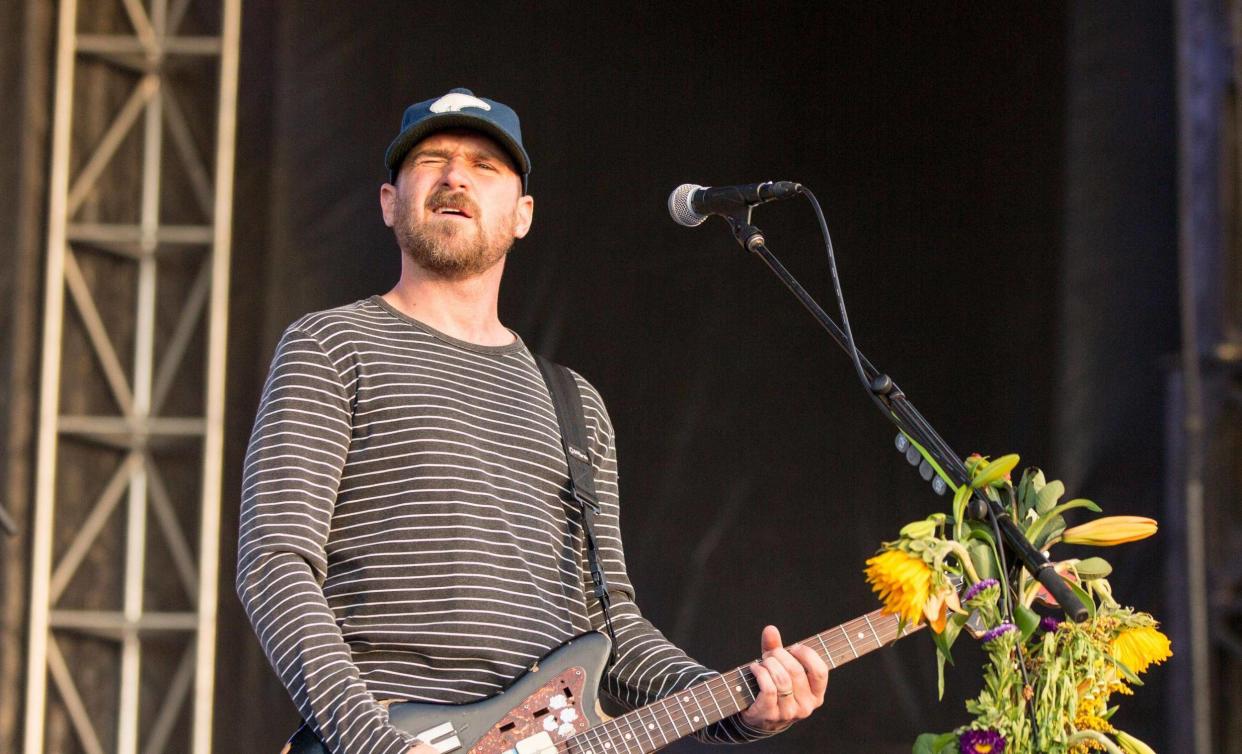As a fan of Brand New, I’m not sorry my last chance to see them was cancelled following allegations of sexual misconduct

Last night, I would have seen one of my favourite bands, Brand New, for the last time. Anyone who has attended a stop on a band’s final tour knows it can be a bittersweet experience: emotional goodbyes and camaraderie between fans brought together for one last time.
There’s that small but significant feeling that this is a chapter of your life drawing to a close – a feeling that, thankfully, is mitigated by the assumption that there will be a reunion tour when someone inevitably runs out of cash.
This time though, that’s not an opportunity I relish – and I’d be surprised if even the most die-hard fans looking for one last hurrah would either. The American rock band’s final UK tour – of which last night’s London show would have been the penultimate stop – was cancelled following allegations of sexual misconduct against the band’s frontman, Jesse Lacey.
The alleged “misconduct” includes soliciting nude pictures from a 15-year-old girl. Since the allegations were made, at least two more women have come forward with their stories – saying they were manipulated, groomed and subjected to masturbatory Skype sessions by Lacey, who in a statement that he did not deny the allegations, instead taking the opportunity to disclose his issues with sexual addiction.
For the umpteenth time in these past weeks, it’s important to consider the language used. “Misconduct” covers a vast umbrella of behaviours – in this case where the young women were minors, the allegations amount to sexual assault.
A large chunk of the audience at last night’s would-be concert fall somewhere between 25 and 35 years old, and they might have been listening to Brand New since in their mid-teens.
Lacey’s lyrics nailed the perfect combination of sentiments that spoke to teenage angst – of being an outsider, of pain and disillusionment, of temptation, of unrequited love and lust – and sounds that were particularly cathartic when stomping down the road, with your headphones turned up at full blast, after having a fight with your mum.
In those quite frankly awful years of puberty, music was a refuge, and if you were that way inclined, the anguished screams of your favourite emo band’s frontman could often crystallise your own personal struggles: you felt like the music was there for you. It’s no surprise that this passion can inspire feelings of intense affection for certain band members, and this is the kind of vulnerability that predators exploit.
Those lyrics also contained clues of Lacey’s dangerous attitudes towards women. In “Me vs Maradonna vs Elvis”, he speaks of his “desperate desires and unadmirable plans” with a young woman whom he has been plying with alcohol before bringing her back to his hotel, but makes a point of saying: “I almost feel sorry for what I’m gonna do”. And in “OK I Believe You, But My Tommy Gun Don’t”, he tells the listener: “I am all you’ve ever wanted, what all the other boys all promised”, before admitting: “my tongue’s the only muscle on my body, that works harder than my heart”. Individually these lyrics amount to nothing. But taken in light of the revelations about Lacey, they are considerably more disturbing.
“You’re flattered because [the singer of] one of your favourite bands is interested in you and nobody’s taken interest in you before,” one of his alleged victims told Pitchfork. It’s easy to see how that perception of being in some way “special” to your idol might trump any reluctance to do what they asked. It’s at the opposite end of spectrum to the likes Harvey Weinstein or Kevin Spacey, who are accused of using their “make or break” power in Hollywood to ensnare their victims. It’s hard to know which is more insidious.
As a Brand New fan, I feel betrayed, and I’m sure many others share my disgust. And of course, that’s nothing compared to the pain, confusion and shame that has no-doubt been felt by his victims, if the allegations are true. Lacey’s apology is little short of insulting – like Weinstein, he used sexual addiction as a way to shift the blame away from predatory behaviours. I doubt it’s any consolation for those who, in some cases, will have suffered lasting psychological damage because of his actions.
It’s a reminder that these behaviours manifest themselves in many different ways and at many different levels – and that there is no “type” of abuser, just like there is no one type of victim. Advances in technology have created more opportunities for exploitation, and if we are to protect legions of devoted young music fans, we need to arm them with the educational tools to know when they are at risk, and create a culture where victims feel safe to come forward – and abusers are punished for their misdeeds.
That means everyone – from the Hollywood executives to the heart-throb front men and all of those in between. I’m certain Jesse Lacey won’t be the last musician to be found out for this disgraceful abuse – if, and when, we are confronted with more uncomfortable truths about figures we admire, we must face them head on to ensure that – no matter how revered a certain figure is – it is widely known that sexual abuse cannot and will not be tolerated.

 Yahoo News
Yahoo News 
